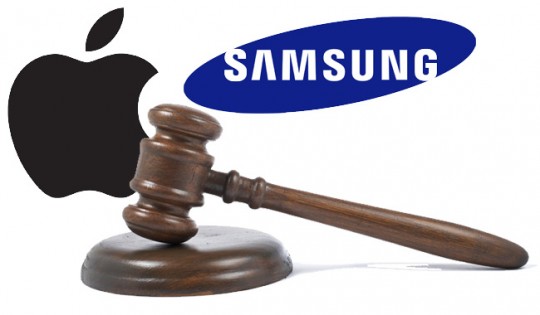
It seems like only yesterday we reported that Samsung was going after iPhone 5 in their latest round of patent infringement suits. Perhaps that is because it was yesterday. Now, Samsung is claiming that foreman of the jury in the infringement case lied about his history to get a spot on the jury. If these allegations are true, it could completely change the complexion of the case.
Samsung is claiming that Velvin Hogan, the foreman in question, failed to report that he a had suit against him filed by former employer Seagate Technology. Samsung happens to own a good part of Seagate. After the suit, Hogan was forced to declare bankruptcy. Samsung clearly believes this could alter his ability to make a fair judgement on the case.
Samsung believes that because Hogan allegedly lied to earn his spot on the jury that the only logical recourse should be a new trial. According to Hogan, this suit from Seagate took place in 1993, and the judge only required he disclose litigation from the past ten years. He went on to say that Samsung had “every opportunity to question him.”
Whether or not this grants Samsung a new trial remains to be seen, but we are quite sure that this will not be the last thing Samsung tries to get the $1.05 billion verdict against them thrown out, or at the very least reduced. We will keep you posted on any new developments with this situation as they occur.
[via TUAW]










Hogan convinced the Jury to throw out completely valid prior art that should have invalided at least 3 major patents in the suit.
The trade dress part of the suit was pretty valid in my mind. Some of Samsung’s phones looked like virtual Clones of the iPhone3g (exact same shape, metal bezel, single button, etc…) and the memo from Google warning Samsung about cloning pretty much proves that Apple should have been awarded SOME damages.
But the Jury COMPLETELY failed on the patent infringement side, and I hope Samsung is successful in getting at least that part of the Jury’s ruling overturned.
The trade dress thing might be somewhat valid, as you say, on some of Samsung’s phones, but not most of them. Either way, $1 billion is quite insane as an award that is supposed to be lost revenue only. That means several million less iPhones had to be sold as a direct result of the alleged infringement. Meanwhile, Apple still uses Motorola’s, Samsung’s, and HTC’s FRAND standards patents (which took years of research and millions of dollars to develop) without paying them for them and without even attempting to negotiate a fair price. It’s no wonder Apple and Microsoft are arguing for weaker patent protection of FRAND patents – so that they can keep freeloading with no consequences, but still turn around and sue for any infringement on their patents.
I’m gonna go out on a limb here and assume that the judge also ordered all jurors to disclose any potential conflicts of interest, whether they occurred in the last ten years or not.
But did Hogan know that Samsung owned a big portion of Seagate? The courts ask further questions like the one about litigation in the past ten years because the jurors aren’t expected to know all of the potential conflicts of interests.
I’m not sure that matters.
The “past 10 years” stipulation that Hogan is citing in defense of why he didn’t disclose the information doesn’t seem to exist in the actual court transcript. If in fact they didn’t ask about “the past 10 years” but an open ended question with no time frame, then he’s pretty much screwed, whether or not he knew about Samsung’s relationship to Seagate, or Seagate’s Lawyer’s relationship to a partner in the firm representing Samsung.
I’m not sure that matters.
The “past 10 years” stipulation that Hogan is citing in defense of why he didn’t disclose the information doesn’t seem to exist in the actual court transcript. If in fact they didn’t ask about “the past 10 years” but an open ended question with no time frame, then he’s pretty much screwed, whether or not he knew about Samsung’s relationship to Seagate, or Seagate’s Lawyer’s relationship to a partner in the firm representing Samsung.
This article leaves out a huge portion of Samsung’s complaint. There was a lot of misconduct from the jury in this case, especially the foreman.
This is just what I can remember off the top of my head:
1. Foreman failing to disclose the earlier lawsuit
2. Foreman using his experience in patent law rather than the jury instructions when he was expressly forbidden to use his past experience with or understanding of patent law
3. Jury illegally awarding punitive damages, when the jury only has the power to award revenue loss damages
4. Foreman completely misunderstanding the requirements for prior art, and convincing the rest jury to disregard all prior art claims from Samsung based on that false understanding (and again, ignoring the jury instructions)
5. Rushing the verdict so quickly that multi-million dollar mathematical/logical mistakes were made and the jury had to go back and make corrections
These are pretty huge errors, and together, they add up to a very unfair verdict.